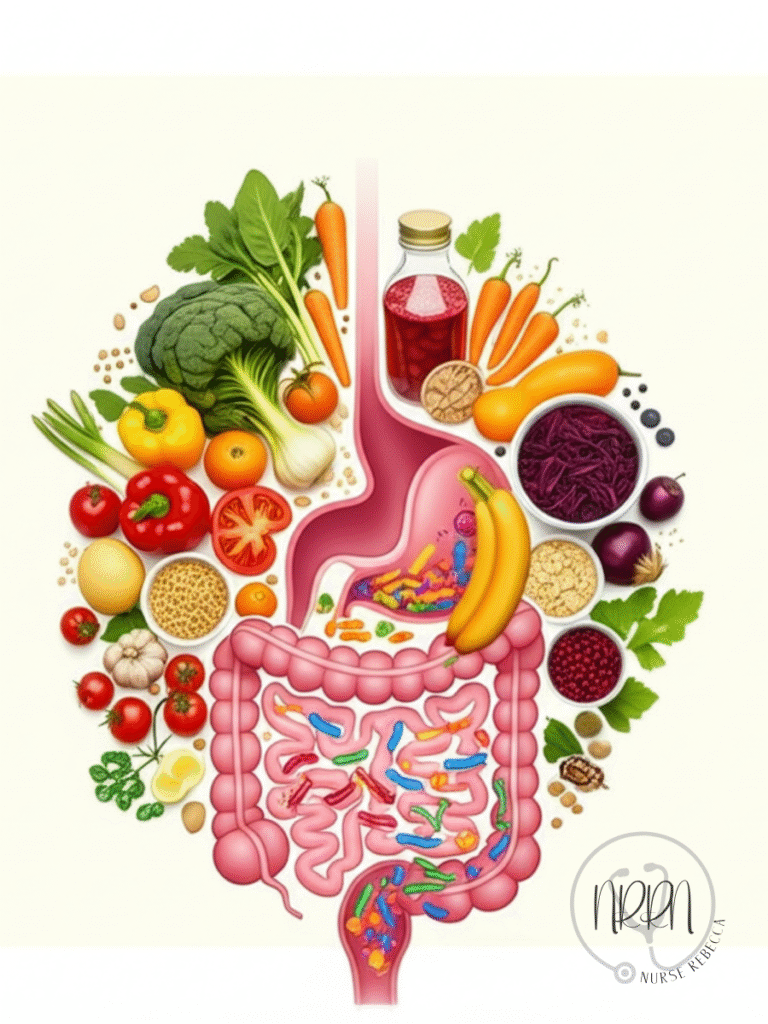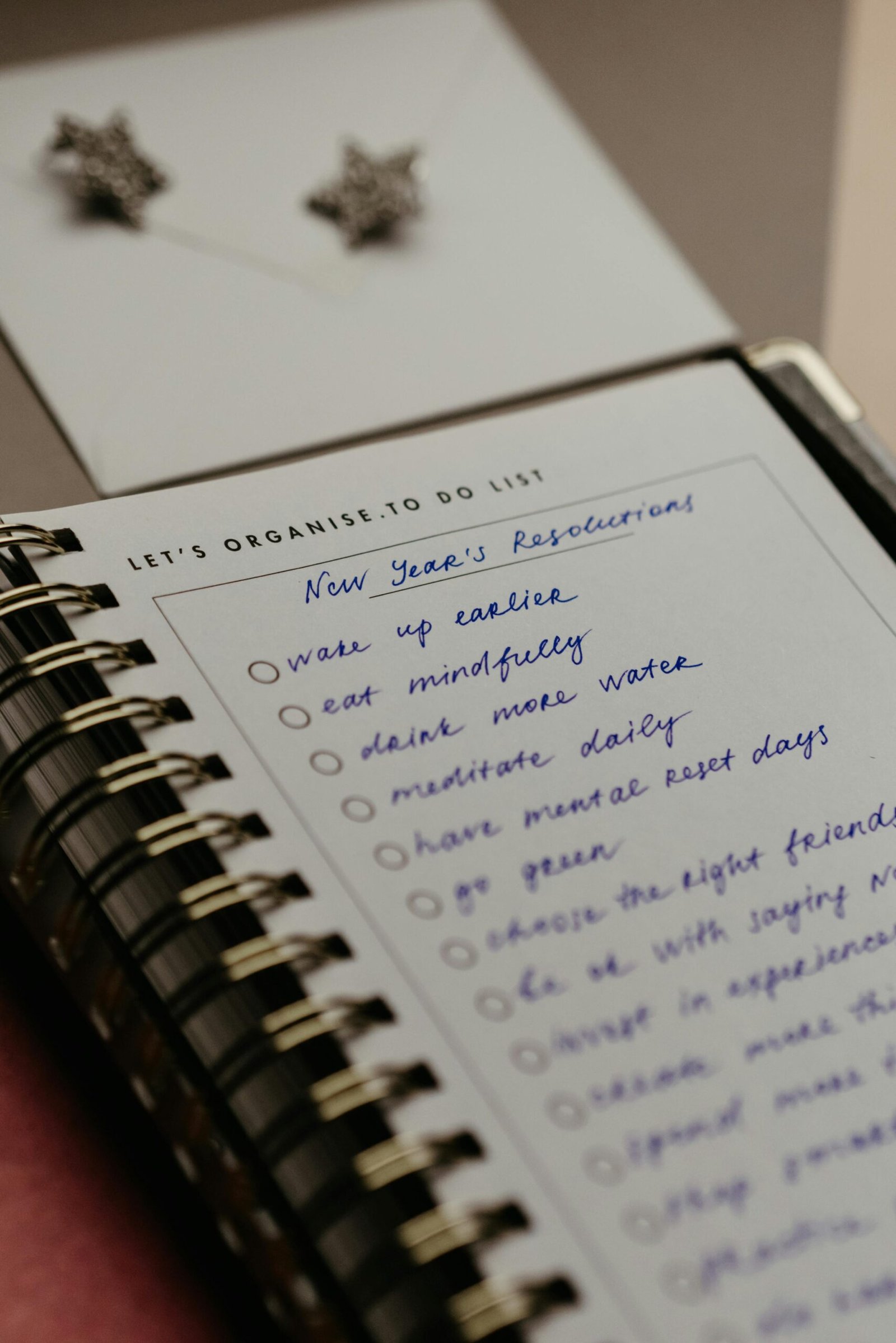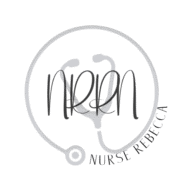
Hey there, lovely ladies! It’s your friendly neighborhood nurse here, and today we’re diving deep into a topic that’s near and dear to my heart, especially after years of navigating the wild world of “diet culture” myself: prebiotics and probiotics. Now, if you’re anything like I used to be, these words might sound a bit…sciency, maybe even a little intimidating. But trust me, by the end of this chat, you’ll feel like a gut-health guru, ready to take on the world (and maybe even a stubborn scale!).
For so long, my journey with weight loss felt like a never-ending rollercoaster. Up, down, sideways, you name it! I tried every fad diet under the sun – remember the cabbage soup diet? Shudders. My body, bless its heart, was put through the wringer, and my gut? Well, it was practically begging for a vacation. It wasn’t until I truly started understanding the power of my gut microbiome that things began to shift, not just with my weight, but with my overall well-being and, honestly, how I felt about myself. This isn’t just about shedding pounds; it’s about nurturing your body, feeling good from the inside out, and finally breaking free from that frustrating yo-yo cycle.
So, let’s get down to business. What in the world are prebiotics and probiotics, and why should you, a woman who’s been on this weight loss journey, care?
Probiotics: Your Gut’s Little Helpers
Think of probiotics as the good guys, the tiny superheroes living in your gut. They’re live microorganisms, mostly bacteria, that, when consumed in adequate amounts, provide a health benefit to the host. Now, don’t let the word “bacteria” scare you! We’re talking about the beneficial kind, the ones that help keep your digestive system humming along smoothly.
I remember my first foray into probiotics. I’d heard whispers about them helping with “gut health,” but honestly, I was skeptical. I’d been let down by so many quick fixes before. My initial thought was, “Is this just another expensive supplement trend?” But, after a particularly rough patch with digestive issues (thanks, crash dieting!), I decided to give it a shot. I picked up a bottle from the pharmacy, a basic one, nothing fancy. The first few days, I didn’t notice much. But then, after about a week, I started realizing something subtle: less bloating. My tummy, which often felt like a balloon by the end of the day, was feeling…calmer. This was a revelation!
When we talk about probiotics, you’ll often hear about different strains. It’s not just about taking any probiotic; it’s about taking the right ones for your specific needs. For example, Lactobacillus and Bifidobacterium are two common genera you’ll see. Within those, there are specific species and strains, like Lactobacillus acidophilus or Bifidobacterium lactis. Each strain can have slightly different benefits. Some might be great for general digestive support, while others might be more targeted for things like immune health or even mood.
This is where it gets a little like detective work. I once had a client who was really struggling with regularity. We tried a few different things, but it wasn’t until she switched to a probiotic with a higher concentration of Bifidobacterium lactis that she finally found some relief. It was a game-changer for her, and honestly, a learning experience for me too. It really drove home the point that one size doesn’t fit all.
So, where can you get these amazing little gut warriors?
Food Sources of Probiotics:
- Yogurt: This is probably the most common one, right? Look for yogurts that specifically say “live and active cultures.” Not all yogurts are created equal! Some are heat-treated after fermentation, which kills off those beneficial bacteria. Greek yogurt can be a great option because it often has a higher protein content too, which is a bonus for satiety.
- Kefir: This is a fermented milk drink, sort of like a thinner, tangier yogurt. It’s packed with probiotics and often has a wider variety of strains than yogurt. I remember when I first tried kefir, I wasn’t so sure about the tanginess, but now I love adding it to smoothies.
- Sauerkraut: Yep, fermented cabbage! This is a fantastic source, but make sure it’s the raw, unpasteurized kind. The pasteurization process destroys the beneficial bacteria.
- Kimchi: A spicy Korean fermented cabbage dish. If you like a little kick, this is a great addition to your plate.
- Tempeh: A fermented soybean product, often used as a meat substitute. It has a nutty flavor and firm texture.
- Miso: A traditional Japanese seasoning, often used in soups. It’s made from fermented soybeans.
- Kombucha: This fermented tea drink has become super popular. It’s got a bit of a fizzy, vinegary taste. Just watch out for added sugars in some brands.
When it comes to food sources, I always encourage my clients to experiment. Find what you enjoy and what works for your taste buds. It’s about making sustainable changes, not forcing yourself to eat something you dread.
Probiotic Supplements:
Now, sometimes food just isn’t enough, or maybe you’re not a fan of fermented foods (and that’s totally okay!). This is where supplements come in. If you’re considering a probiotic supplement, here are a few things to keep in mind:
- CFUs (Colony Forming Units): This tells you how many live and active microorganisms are in each dose. You’ll see numbers like 1 billion CFU or 50 billion CFU. A higher number isn’t always better, but generally, a good starting point for general health might be in the 10-20 billion CFU range. However, for specific conditions, a healthcare provider might recommend higher doses.
- Strain Diversity: Look for supplements that contain multiple strains of beneficial bacteria. A good blend can offer a wider range of benefits.
- Storage: Some probiotics need to be refrigerated, while others are shelf-stable. Make sure you’re storing them correctly to maintain their potency.
- Quality: This is a big one. The supplement market can be a bit like the Wild West. Look for reputable brands that have third-party certifications (like NSF or USP). This helps ensure that what’s on the label is actually in the bottle. I learned this the hard way with a cheap brand once; it did absolutely nothing for me!
- Timing: While some people prefer to take probiotics with food, others take them on an empty stomach. The most important thing is consistency. Find a time that works for you and stick to it. I usually recommend taking them in the morning before breakfast, but honestly, just remember to take it!
Prebiotics: Fuel for Your Gut Heroes
So, you’ve got your gut filled with these amazing probiotic superheroes. But what do superheroes need to thrive? Fuel! That’s where prebiotics come in. Prebiotics are non-digestible fiber compounds that act as food for the beneficial bacteria in your gut. They literally help your probiotics grow and multiply, making them even more effective.
I like to think of it this way: if probiotics are the tiny gardeners in your gut, prebiotics are the super-rich soil and fertilizer that help them flourish. Without enough prebiotics, your probiotics are like gardeners trying to grow plants in barren land – not much success!
My own “aha!” moment with prebiotics came when I was trying to figure out why my probiotic supplement seemed to be doing less for me over time. I was taking it consistently, but the benefits weren’t as pronounced. After some digging and consulting with a dietitian colleague, she asked me about my fiber intake. Lightbulb moment! My diet, though improving, was still lacking in diverse fiber sources. I was eating a lot of processed foods (a lingering habit from my dieting days) that were pretty much stripped of their natural fiber.
Once I started intentionally adding more prebiotic-rich foods to my diet, I noticed a huge difference. My digestion became even more regular, and that stubborn belly bloat, which had been a persistent nuisance, really started to diminish. It wasn’t overnight, but it was a gradual, noticeable improvement.
Food Sources of Prebiotics:
The good news is that many common, delicious foods are packed with prebiotics!
- Garlic: Not just for warding off vampires! Garlic is a fantastic source of prebiotics.
- Onions: Another flavorful addition to your meals that also feeds your gut bugs.
- Leeks: Similar to onions and garlic, leeks are part of the allium family and great for gut health.
- Asparagus: A spring favorite, this green veggie is a good source of prebiotic fiber.
- Bananas: Especially slightly green ones, as they contain resistant starch, a type of prebiotic. As bananas ripen, the resistant starch converts to simple sugars, so that slightly firm banana is your gut’s best friend.
- Oats: A wonderful breakfast staple! Opt for steel-cut or rolled oats for the most benefit.
- Apples: Specifically, the pectin in apples acts as a prebiotic. Don’t peel them – the skin is where a lot of the good stuff is!
- Flaxseeds: These tiny seeds are packed with fiber, including some prebiotic fiber.
- Legumes (beans, lentils, chickpeas): These are powerhouses of fiber and resistant starch. I know, for some, beans can cause gas, but often, with consistent intake, your gut adapts and becomes better at processing them. Start slow if you’re not used to them!
- Dandelion Greens: If you’re feeling adventurous, these can be added to salads or sautéed.
- Chicory Root: This is often found in some coffee substitutes and fiber supplements.
The key with prebiotics from food sources is variety. The more diverse your intake of plant-based foods, the more diverse your gut microbiome will be. And a diverse gut microbiome is a happy, healthy gut microbiome!
Prebiotic Supplements:
While I always recommend trying to get your prebiotics from whole foods first, there are also prebiotic supplements available. These often contain fibers like inulin, fructooligosaccharides (FOS), or galactooligosaccharides (GOS).
- Inulin: A common prebiotic fiber derived from chicory root. It can be added to smoothies or baked goods.
- FOS (Fructooligosaccharides): Found naturally in many plants.
- GOS (Galactooligosaccharides): Often derived from lactose.
If you decide to go the supplement route, start with a small dose and gradually increase it. Too much too soon can lead to uncomfortable bloating and gas – remember, your gut needs time to adjust to all that lovely new fiber! I made this mistake once with an inulin supplement, thinking more was better. Boy, was I wrong! My stomach felt like a drum, and I learned a valuable lesson about gradual introduction.
Putting It All Together: The Gut-Loving Lifestyle
So, how do we weave all this amazing information into your daily life? It’s not about perfection; it’s about progress. It’s about building sustainable habits that support your gut and, in turn, your overall well-being.
- Embrace Fermented Foods: Start by incorporating one or two fermented foods into your weekly routine. Maybe it’s a dollop of yogurt with your breakfast, or some sauerkraut on your sandwich. Small steps lead to big changes.
- Fiber Up Your Life: Increase your intake of plant-based foods gradually. Aim for a variety of fruits, vegetables, whole grains, and legumes. Think about adding a handful of berries to your oatmeal, or tossing some chickpeas into your salad.
- Hydrate, Hydrate, Hydrate: Water is crucial for fiber to do its job effectively. Without enough water, fiber can actually lead to constipation. So, keep that water bottle handy!
- Consider a Quality Probiotic Supplement: If you’re not consistently getting probiotics from food, or if you have specific digestive concerns, a high-quality supplement can be a fantastic tool. But remember, it’s a supplement to a healthy diet, not a replacement.
- Listen to Your Body: This is perhaps the most important tip. Your body will give you clues. Pay attention to how different foods and supplements make you feel. Are you less bloated? Is your digestion more regular? Are you feeling more energized? These are all signs that your gut is starting to sing!
- Patience is a Virtue: You didn’t get here overnight, and your gut health won’t transform overnight either. Be patient with yourself and the process. Consistency is key. There will be days when you might not hit all your goals, and that’s perfectly fine. Just get back on track the next day.
I know, it can feel like a lot of information, and believe me, when I first started learning about this, my head was spinning. But what I’ve realized over the years, both personally and professionally, is that focusing on gut health is one of the most powerful things you can do for your body, especially if you’ve been battling with weight and body image for years. When your gut is happy, your mood improves, your energy levels soar, and your body starts to respond in ways you might not have thought possible. It’s truly empowering to feel in tune with your body again, to nourish it, and to finally shed the burdens of yo-yo dieting and self-criticism.
This isn’t about restriction; it’s about abundance – nourishing your body with diverse, wholesome foods that love your gut back. It’s about empowering yourself with knowledge and making informed choices that support your well-being from the inside out. You deserve to feel amazing, to love your body, and to step into a vibrant, healthy future.
Ready to take the next step on your health journey?
If you’re feeling a bit overwhelmed by all this information, or if you’re ready for personalized guidance and a supportive partner on your path to loving your body and achieving sustainable weight loss, I’m here to help. My health coaching services are designed to help women like you navigate the complexities of nutrition, gut health, and mindful living, transforming years of yo-yo dieting into a journey of self-love and lasting well-being. Let’s work together to create a plan that truly works for you.

Rebecca Paeth, BSN-RN
Nurse Rebecca Health Coaching
Join me on my journey to a healthier lifestyle
I'm Rebecca, and I've been where you are.
If you’re tired of the endless cycle of dieting and conflicting health advice, feeling overwhelmed and longing to truly understand how to nourish your body and feel good in your own skin like I did, you’re in the right place. Through my blog, I share insights on weight loss, mindset, neuroplasticity, nutrition, and self-care to empower you on your wellness journey. Whether you’re seeking personalized guidance to address specific health challenges or you’re ready to break free from restrictive diets and embrace body acceptance while achieving sustainable weight loss, I offer coaching programs designed to help you cultivate lasting health and body confidence. Ready to explore a different path?

Benefits You Can Expect
Personalized, Evidence-Based Support
One-on-one sessions tailored to your health history, goals, and lifestyle—rooted in nursing expertise and current wellness science.
Mindset Transformation for Lasting Change
Guided coaching to help reframe limiting beliefs around food, body image, and health—so you stop sabotaging your progress.
Clear, Actionable Guidance Without the Overwhelm
Practical tools, customized strategies, and compassionate support to help you take consistent, manageable steps forward.
Our Happy Clients!
“Working with Rebecca completely shifted my mindset.”
I had tried everything—diets, workout programs, you name it—but nothing ever stuck. Rebecca showed me how to reframe my beliefs about food and my body. I’m losing weight without trying to lose weight!

Rated 5 out of 5
Sarah L.
“I finally feel in control of my health for the first time in years.”
Rebecca didn’t just focus on my symptoms—she really listened to my story and helped me understand the root of my challenges. Her guidance was practical and tailored to me, and now I feel empowered to make choices that support my health every day.

Rated 5 out of 5
Lisa S.
“Rebecca’s support made all the difference.”
Having someone who understands both the medical side and the emotional side of health was a game-changer for me. Rebecca provided me with actionable steps, encouragement, and accountability every step of the way. I can’t recommend her coaching enough!

Rated 5 out of 5
Kimberly F.
How It Works
Schedule Your Free Consultation
Book a no-pressure session where we’ll talk about your health goals, struggles, and what’s been holding you back. You’ll walk away with clarity—even if you don’t sign up.
I Handle the Details, You Focus on You
Based on your unique history and needs, I’ll create a personalized plan—no generic advice here. You’ll get clear next steps, ongoing support, and a roadmap that fits your life.
See Real, Sustainable Results
With consistent guidance and mindset shifts, you’ll feel more in control of your health, more confident in your choices, and more connected to the person in the mirror.
What’s Included in Your Coaching Journey

1-on-1 Coaching Sessions
Personalized 60-minute sessions tailored to your unique health goals, lifestyle, and challenges.

Custom Wellness Plans
A roadmap designed just for you—no generic advice, just focused guidance based on your needs and medical background.

Tools to Support Change
Worksheets, journaling prompts, and reflection exercises to help you stay mindful and motivated between sessions.

Progress & Accountability Tracking
We’ll track what matters most to you—from energy to mindset to symptom relief—so you can see real growth.

Mindset & Habit Coaching
Break free from old patterns and build new habits with a focus on lasting behavior change—not quick fixes.

Ongoing Support Between Sessions
Stay connected with check-ins and direct access to me for questions, encouragement, and clarity when you need it.
Ready to Take the First Step Toward a Healthier, Happier You?
You don’t have to figure it out alone. Whether you’re managing a chronic condition or tired of the constant struggle with weight and self-doubt, support is here.
